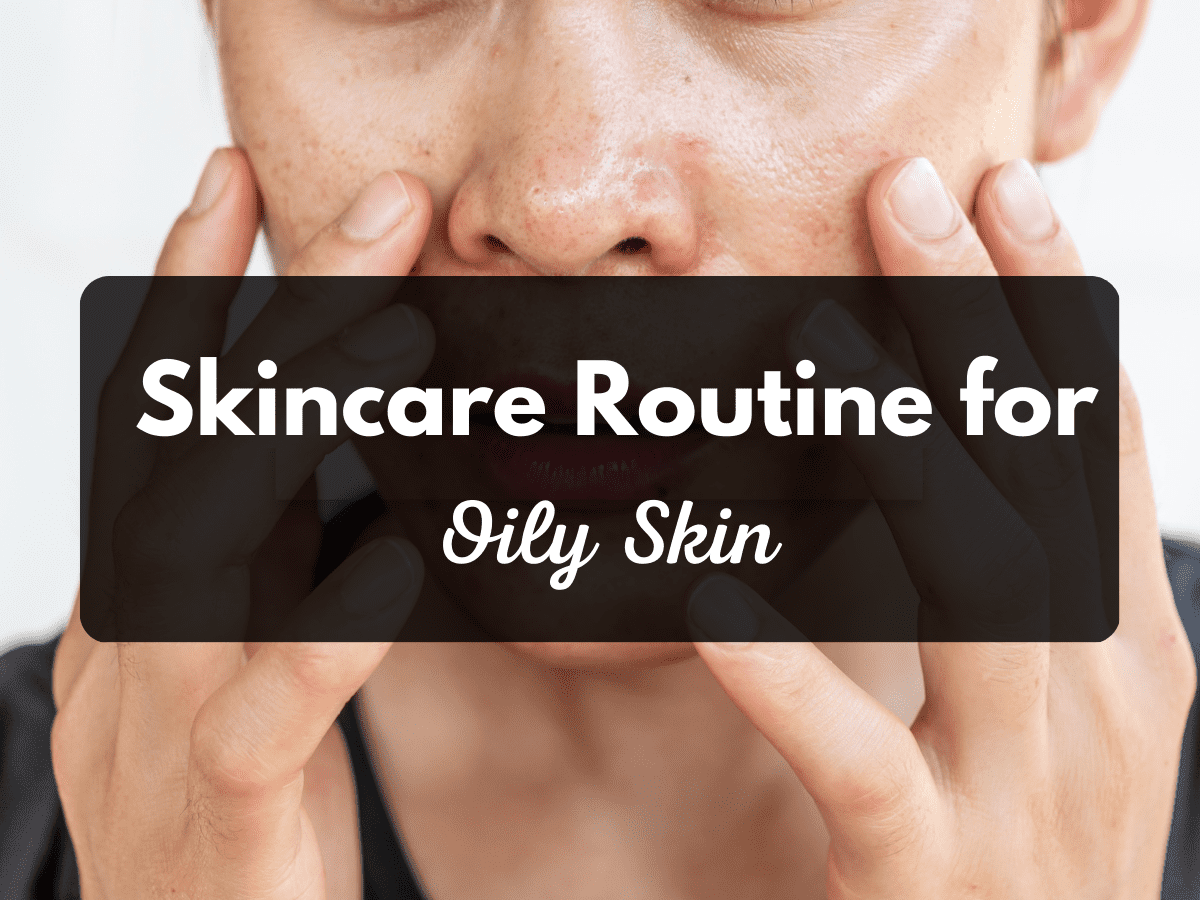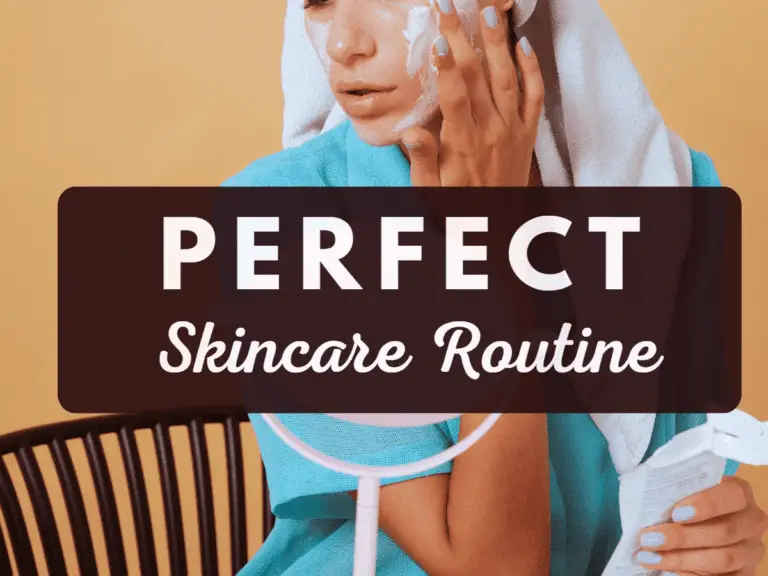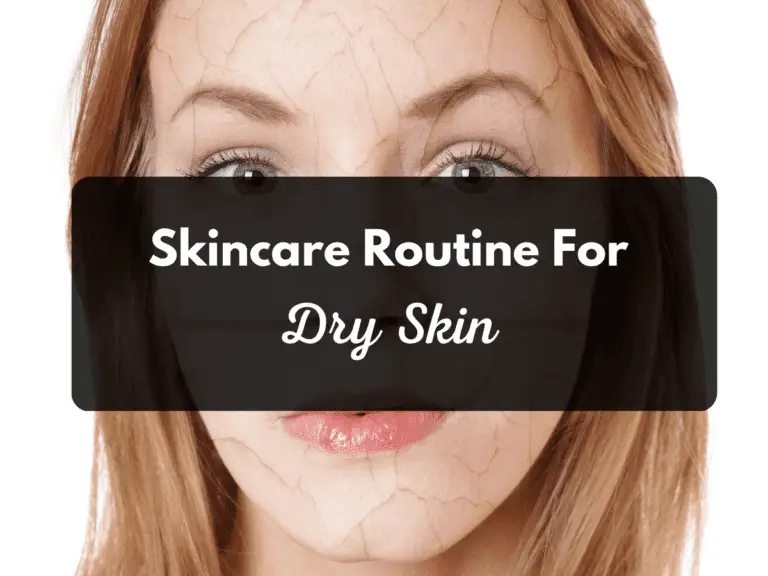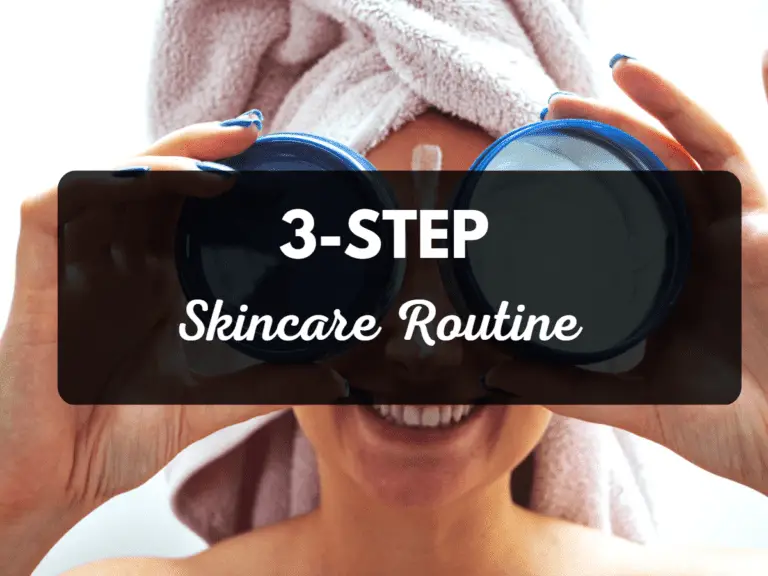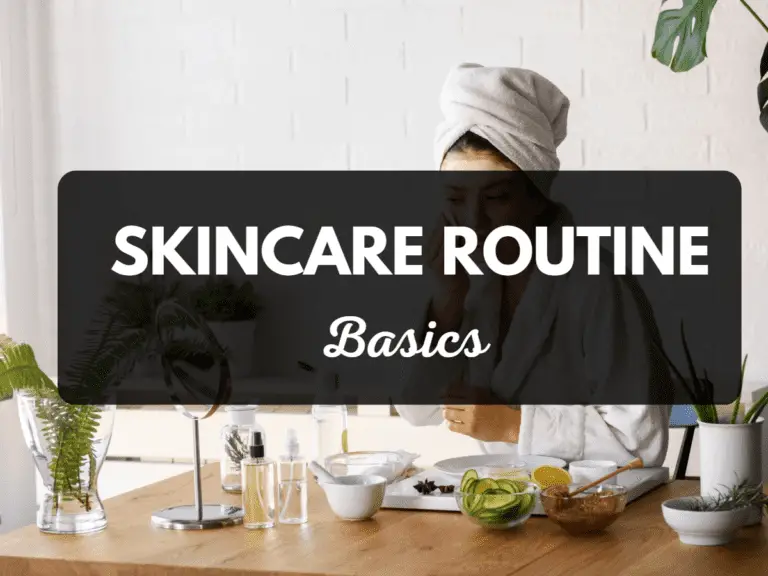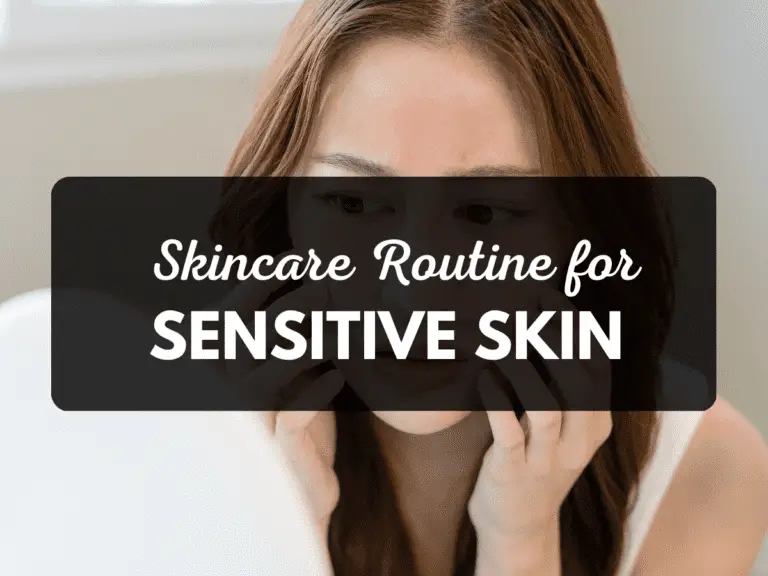Hey there! Are you tired of feeling like your face is a slip-n-slide by noon?
Do you constantly reach for blotting papers or powder throughout the day?
If so, you might have oily skin.
But don’t worry, you’re not alone!
Many people struggle with excess oil production, but the good news is that you can keep it under control with a proper skincare routine.
In this article, I’ll share some tips and tricks on building a skincare routine for oily skin.
What is oily skin?
First things first, let’s talk about what exactly oily skin is. You get oily skin when the sebaceous glands in your skin produce too much oil, also known as sebum. Sebum is essential for keeping your skin healthy and moisturized. Still, too much can lead to clogged pores, breakouts, and a shiny appearance.
Now, you might be wondering why having a skincare routine is important for oily skin.
Well, without a proper routine, excess oil can build up on your skin and lead to many problems.
For example, clogged pores may lead to acne and breakouts, and the excess oil can even contribute to premature aging. Properly caring for your oily skin can help prevent these issues and maintain a healthy, glowing complexion.
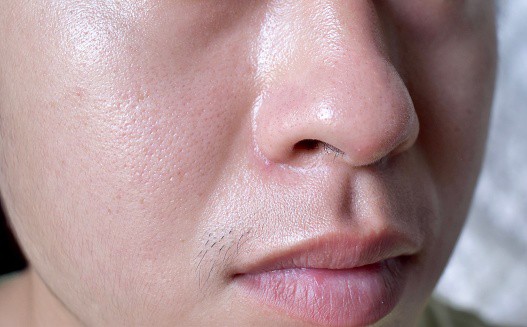
What causes oily skin?
Here are a few factors that can contribute:
- Genetic factors: Some people are predisposed to producing more oil than others due to their genes.
- Hormones: Hormonal fluctuations during puberty, pregnancy, or menopause, can lead to increased oil production.
- Environmental factors: Hot and humid weather can increase oil production, as can exposure to pollution and other toxins.
- Diet: Eating an unhealthy diet high in processed foods and unhealthy fats can contribute to oily skin, as can consuming excessive amounts of dairy products.
What does oily skin need?
Oily skin needs a skincare routine to help control excess oil production, prevent clogged pores, and maintain a healthy moisture balance. Oily skin is often a result of genetics, hormones, and environmental factors, so it’s important to use the right ingredients and products to address these underlying causes.
In general, oily skin needs:
- Gentle cleansing: Oily skin needs to be cleaned regularly to remove excess oil, dirt, and impurities that can clog your pores. However, harsh cleansers can also strip your skin’s natural oils, producing even more oil. Look for a gentle, non-comedogenic cleanser that won’t dry out your skin.
- Exfoliation: Exfoliation can help remove dead skin cells and unclog your pores, preventing breakouts and minimizing the appearance of large pores. Look for an exfoliating product that contains salicylic acid or glycolic acid, which can help regulate oil production and prevent clogged pores.
- Lightweight moisturizer: Contrary to popular belief, even oily skin needs hydration. However, heavy creams and lotions can clog your pores and contribute to excess oil production. Look for a lightweight, oil-free moisturizer that contains ingredients like hyaluronic acid, which can hydrate your skin without weighing it down.
- Sun protection: Sun damage can worsen oily skin and contribute to premature aging. Look for a lightweight, oil-free sunscreen.
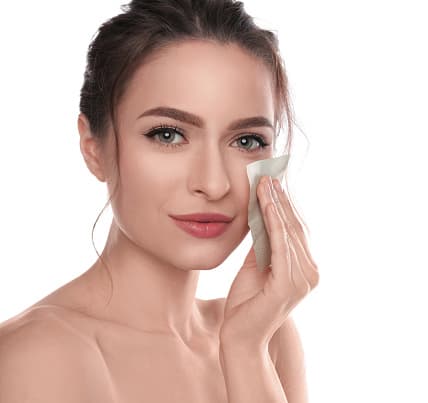
Ingredients to Look For in Oily Skincare
When shopping for skincare products for oily skin, there are a few key ingredients to look out for. These include:
- Salicylic acid: This beta-hydroxy acid (BHA) exfoliates the skin and helps to unclog pores, making it a fantastic ingredient for oily and acne-prone skin.
- Benzoyl peroxide: This ingredient is known for its acne-fighting properties, as it kills the bacteria that can lead to breakouts.
- Glycolic acid: Another type of alpha-hydroxy acid (AHA), glycolic acid, helps to exfoliate the skin and improve texture.
- Niacinamide: This form of vitamin B3 is great for oily skin, as it helps to regulate sebum production and improve skin barrier function.
- Clay: Clay masks are great for oily skin, absorbing excess oil and unclogging pores.
- Tea tree oil: This natural ingredient has antibacterial properties and can help to reduce inflammation, making it a great option for acne-prone skin.
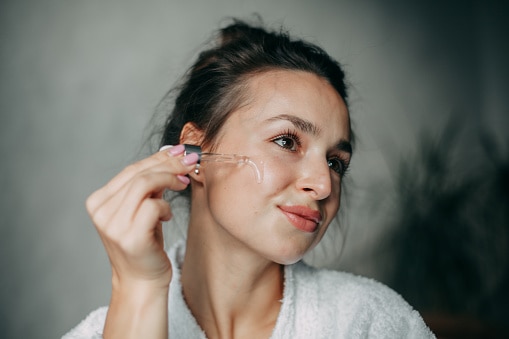
Ingredients to avoid For in Oily Skincare:
- Mineral oil: Mineral oil is a common ingredient in skincare products but can be too heavy for oily skin. It can clog pores and contribute to excess oil production.
- Lanolin: Lanolin is a natural oil derived from sheep’s wool. While it can be a great moisturizer for dry skin, it can be too heavy for oily skin and may clog pores.
- Petrolatum: Petrolatum, or petroleum jelly, is a common ingredient in moisturizers and lip balms. While it can be a great occlusive agent for dry skin, it can be too heavy for oily skin and may contribute to acne.
- Alcohol: Alcohol is a common ingredient in toners and astringents, but it can be too harsh for oily skin. It can strip your skin of natural oils, increasing oil production and irritation.
- Fragrance: Fragrance is a common ingredient in skincare products, but it can irritate the skin, especially for sensitive or oily skin. Look for fragrance-free products to avoid potential irritation.
How to Read Labels and Choose the Right Products
Reading labels can be overwhelming, but choosing the right products for your oily skin is essential.
Tips to help you navigate ingredient lists and choose the right products:
- Look for oil-free products: Oil-free products are specifically formulated for oily skin and are less likely to clog pores or contribute to excess oil production.
- Check for non-comedogenic ingredients: Non-comedogenic ingredients are less likely to clog pores and can help keep your skin clear. Look for products that are labeled non-comedogenic.
- Avoid ingredients that can exacerbate oil production: As we discussed earlier, avoid ingredients like mineral oil, lanolin, petrolatum, and alcohol. These can contribute to excess oil production and clogged pores.
- Look for ingredients that help control oil production: Ingredients like salicylic acid, benzoyl peroxide, and glycolic acid can help control oil production and keep your skin clear. Look for products that contain these ingredients.
- Consider the product’s texture: Oily skin can benefit from lightweight, water-based products that absorb quickly into the skin. Look for products that have a gel or lotion consistency.
Don’t be afraid to experiment with various products to find what works best for you.
Now that we’ve covered the basics let’s get into the fun stuff – building a skincare routine for oily skin!
The Best Skincare Routine for Oily Skin
Now that we know what ingredients to look for let’s talk about the best skincare routine for oily skin. Here’s a step-by-step guide to getting you started:
- Cleanser: Start your routine with a gentle, oil-free cleanser to remove dirt and oil from the skin. Look for a cleanser containing salicylic or glycolic acid for added benefits.
- Toner: Follow up with a toner to help balance your skin’s pH and remove any remaining traces of dirt and oil. Look for a toner designed for oily skin.
- Serum: If you want to target specific skin concerns, such as fine lines or dark spots, consider adding a serum to your routine. Look for a serum that contains vitamin C or hyaluronic acid for added benefits.
- Moisturizer: Even oily skin needs hydration! Look for a lightweight, oil-free, and non-comedogen moisturizer. Consider using a moisturizer that contains niacinamide to help regulate sebum production.
- Sunscreen: It protects your skin from the sun’s harmful rays using a broad-spectrum sunscreen with an SPF of 30 or higher. Look for a lightweight, oil-free formula that won’t leave a greasy residue on your skin.
How to Get Rid of Oily Skin Naturally?
If you’re looking for natural ways to get rid of oily skin, there are several things you can do.
Tips to help you control excess oil production:
- Cleanse regularly: Regularly washing your face can help remove excess oil and prevent clogged pores. Look for a gentle, oil-free cleanser that won’t strip your skin of its natural oils.
- Use a toner: Toning can help remove any excess oil and tighten your pores. Witch hazel is a natural toner that can help control oil production.
- Exfoliate: Exfoliating can help remove dead skin cells and prevent clogged pores. Look for a gentle exfoliator that won’t irritate your skin.
- Apply a clay mask: Clay masks absorb excess oil and impurities from your skin. Look for masks that contain ingredients like kaolin or bentonite clay.
- Use blotting papers: Blotting papers can help absorb excess oil throughout the day without disrupting your makeup. Look for blotting papers made with natural ingredients like rice or hemp.
- Watch your diet: A diet high in sugar and processed foods can contribute to oily skin. Incorporating more fruits and vegetables into your diet can help balance your skin’s oil production.
- Avoid heavy, oily products: Stick to lightweight, oil-free products that won’t contribute to excess oil production.
- Stay hydrated: Drinking plenty of water help regulate oil production and hydrate your skin.
Natural Remedies
If you want to use natural remedies to get rid of oily skin, there are several options you can try. Remember that these remedies may not work for everyone, and it’s important to consult with a dermatologist before trying any new treatment. Here are some natural remedies for oily skin:
- Honey has antibacterial properties that help keep your skin clear and reduce oil production. Apply a tablespoon of honey to your face for 10-15 minutes before rinsing off with warm water.
- Aloevera has anti-inflammatory properties that can help soothe irritated skin and reduce oil production. Apply aloevera gel to the face and leave it on for 10-15 minutes before washing it off with warm water.
- Green tea has antioxidants that can help reduce inflammation and oil production.
Remember that natural remedies may take longer to show results than commercial skincare products. It’s important to be patient and consistent with your routine to see the best results.
Is Vitamin C Good for Oily Skin?
Yes, Vitamin C is good for oily skin! Vitamin C is an antioxidant that protects your skin from free radicals and environmental stressors, which can contribute to excess oil production and breakouts.
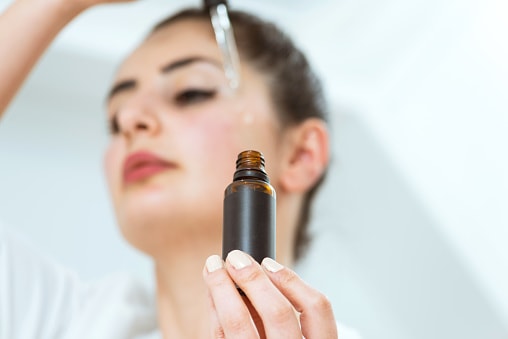
Here are some benefits of Vitamin C for oily skin:
- Reduces inflammation: Vitamin C has anti-inflammatory properties that help soothe irritated skin and reduce inflammation. This can help reduce the appearance of redness and breakouts associated with oily skin.
- Brightens skin: Vitamin C can help brighten your complexion and reduce dark spots and hyperpigmentation caused by acne.
- Controls oil production: Vitamin C can help regulate oil production and keep your skin hydrated without making it greasy.
- Boosts collagen production: Vitamin C can help boost collagen production, which can help improve the texture and elasticity of your skin.
When choosing a Vitamin C product for oily skin, look for lightweight, water-based formulas that won’t clog pores or contribute to excess oil production. Additionally, it’s important to start with a lower concentration of Vitamin C (around 10%) and gradually increase it over time to prevent irritation.
While Vitamin C can benefit oily skin, it’s also important to note that it’s not a cure-all solution. Oily skin is often a result of genetics, hormones, and environmental factors, so it’s important to have a well-rounded skincare routine that includes other ingredients like salicylic acid, benzoyl peroxide, and glycolic acid to keep your skin clear and healthy.
Key Takeaway
Building a skincare routine for oily skin doesn’t have to be complicated or expensive. By using the right ingredients and following a simple routine, you can keep excess oil production under control and maintain a healthy, glowing complexion. Remember

